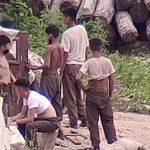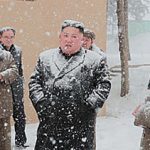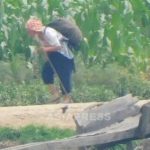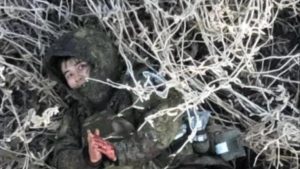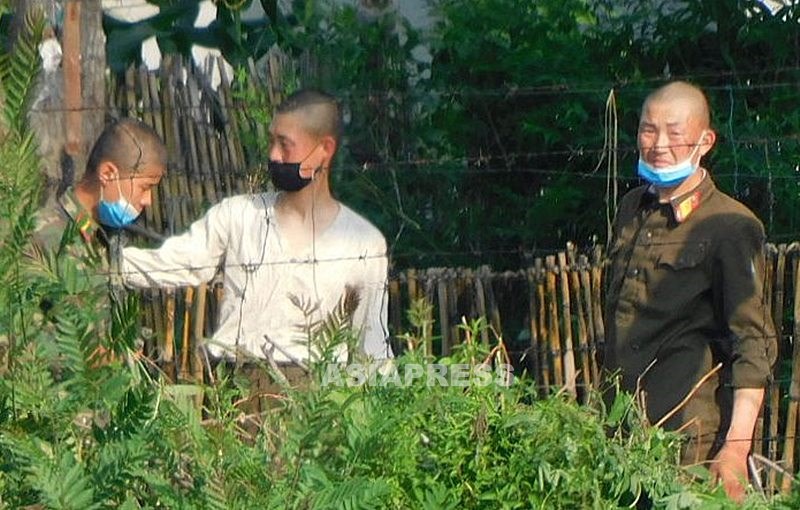
Nighttime curfews and road closures continue at 6 a.m. People complain that they can't even go to their neighbours' houses.
The Kim Jong-un regime has placed the border area with China on high alert to prevent the influx of the coronavirus and has imposed a curfew since last August and recently has maintained strict control over residents by imposing forced labour on violators. The authorities have notified residents that they will keep strict curfew even after coronavirus, and dissatisfaction grows (Kang Ji-won / ISHIMARU Jiro).
The border between North Korea and China is approximately 1,400 kilometres long. It is the equivalent of the distance from Osaka to Cape Shiretoko in a straight line. The Kim Jong-un regime, fearing that the coronavirus might be coming from China via smugglers, cross-border traffickers, and trash, began expanding barbed wire along almost the entire length of the border last spring.
Last August, a proclamation was issued in the name of the Ministry of Social Security (police), stating that a buffer zone would be established along the border and that anyone approaching without permission would be shot without warning.
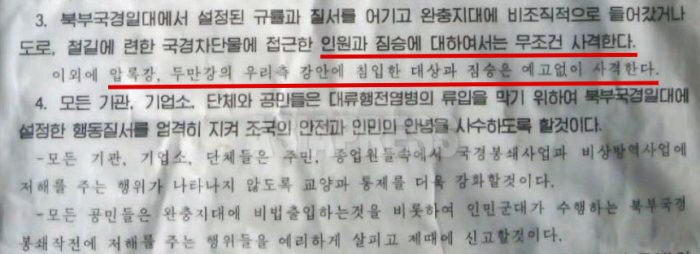
◆ Complete lockdown at 6 p.m., with markets closed
The proclamation clearly stated that residents living in border areas are not allowed to go out or pass through at night: from April to September, from 8:00 p.m. to 5:00 a.m., and from October to March, from 6:00 p.m. to 7:00 a.m., which is still maintained. It is as if they are under martial law.
There is a standard view among local reporting partners that the real purpose of these harsh measures is to prevent people from fleeing to China and crossing the border in anticipation of the economic downturn caused by the tighter control of coronavirus.
Of course, the residents are highly dissatisfied with the severe inconvenience. However, it is said that the authorities intend to keep the border area on high alert even after the end of the coronavirus.
The following is a summary of a report from a reporting partner living in a city in North Hamkyung Province.
◆A Report from a Strictly Martial City
In the border area, the officials say that nighttime curfews and bans will continue long into the future, even if trade with China resumes, regardless of coronavirus. As a result, it has become difficult for me to go out at night and drink with my friends.
The curfew is lifted at six in the evening and seven in the morning. This means that once it gets a bit dark, you can't go out, so the border area is becoming uninhabitable. The same goes for the markets, which close at 6:00 pm, and you have to go home unconditionally. As a result, the city will become a world dominated by those who control it, such as security personnel, policing teams, and security guards in the evening.
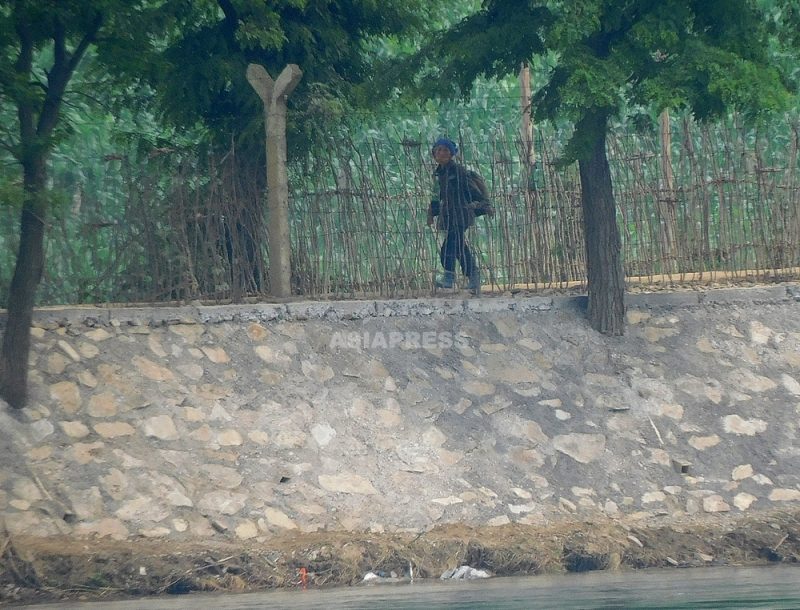
◆Eradicate smuggling and defections
I asked the security officer assigned to the dong to investigate how long this measure would last. He told me that the nighttime restriction of movement in the border area would continue long after the coronavirus, although the duration may change slightly. He said that the authorities are saying that smuggling and defections will not be eradicated unless the nighttime blockade of the border cities is continued.
The people's frustration is intense. They think that it's not wartime, and they can't even go out to their neighbour's house. But if you talk about it, you are treated as "anti-socialist." As a result, the streets are noisy at night, with people yelling at each other, some trying to get away from the police and further trying to catch them.
You are sent to the labour training unit for unpaid work if you are caught in a crackdown. If a child is caught out, the parents will be criticized. If it becomes too frequent, the parents must go to the labour training unit. They are sent to urban construction and construction sites in the city. In the case of men, the method is to send them to work in the morning and mobilize them for construction at 2 pm.
※ labour training unit is a detention facility under the jurisdiction of the police where people are sentenced to forced labour for up to one year for violating social order.
Roads are blocked at night, so transport vehicles are stuck in the area. Long-distance cars are also prohibited from travelling at night, so it isn't easy to transport goods.
After confirming with reporting partners in other cities in North Hamkyung Province, Ryanggang Province and Pyongan Province, the nighttime curfew and traffic ban are expected to continue.
※ ASIAPRESS contacts its reporting partners in North Korea through smuggled Chinese mobile phones.
- <Inside N. Korea> For Some Reason, the Power Situation Suddenly Improves. So Why do Some Cities Get 10 Hours of Power a Day? (2021-12-01)
- <Inside N. Korea>Outbreak of “10-Day Flu” in North Korea: Authorities Restrict Attendance at Work Due to Lack of Medical Supplies (2021-11-30)
- <Inside N. Korea> The Great Annoyance of Kim Jong-un's Visit to Samjiyon: Residents Forbidden to Step Out for Several Days (2021-11-25)
- Top Secret Documents on North Korea's 'Tongpyo’: Regime Admits to Suspending the Issuance of Banknotes Due to Financial Woes (2021-11-13)
- <Interview with a Single Mother> More and More Young Women Avoiding Marriage - ISHIMARU Jiro (2021-11-02)
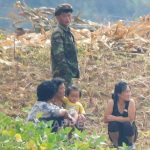
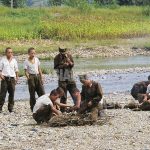
![[Video Report] Foot of N.Korean, Japanese Used Bike](https://www.asiapress.org/rimjin-gang/wp-content/uploads/2018/07/200812nk-150x150.jpg)
